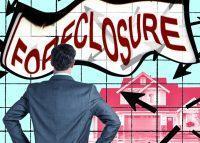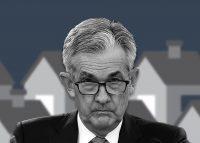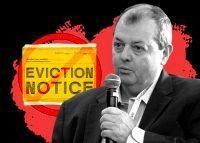Gov. Andrew Cuomo’s foreclosure and mortgage moratorium is little more than a strong suggestion to lenders.
At a Thursday press conference, Cuomo touted the suspension, saying, “if you are not working, or working only part-time, we will have banks and financial institutions waive mortgage payments for 90 days.”
But guidance issued by the Department of Financial Services several hours later reveals that the department would only “urge” lenders to “do their part” by suspending mortgage payments and foreclosures. A spokesperson for the department confirmed that the guidance is not mandatory.
It also only applies to residential mortgages, not commercial loans secured by property, according to the spokesperson.
“It’s not a rule, it’s not a regulation, it’s just guidance,” said Adam Swanson, a partner in McCarter & English’s bankruptcy practice, who focuses on real estate litigation. “People are left to hope that the mortgage company abides by the guidance voluntarily.”
The guidance also includes language recognizing that many mortgages are secured or insured by third parties, which would prevent lenders from following the guidance. (Earlier this week, the Federal Housing Finance Agency announced Fannie Mae and Freddie Mac would suspend foreclosures and evictions on single-family properties for at least 60 days.)
“From a commercial lending perspective, this is not mortgage relief,” said Craig L. Price, a partner at Belkin Burden Goldman. “Banks are still waiting for specificity that’s not been given.”
In the meantime, banks are giving landlords a break on a case-by-case basis, Price said.
Commercial banks may also be responding to strong internal pressure in the industry to conform to best practices, said real estate attorney Joshua Stein. He added that the state-issued guidance is far from a “strict moratorium.”
Another real estate attorney called it “toothless.”
New York State earlier this week mandated that gyms, casinos, movie theaters and more shutter indefinitely, and that restaurants and bars move to pick-up and delivery only. On Friday, Cuomo barred all non-essential employees going into the workplace.
With a loss of income for businesses and employees, landlords and renters alike are hoping for a relief package before April 1, when rent is due. At Friday’s press conference, Cuomo acknowledged that “everybody” will soon be in the position of not being able to pay their bills.
“It’s going to have to be something that the nation and state addresses,” said Cuomo. “And we will — but one crisis at a time.”
Without government action — in the form of a direct subsidy, mandated loan forbearance or a tax abatement — landlords say they will face financial ruin if, and when, their tenants cease to pay rent.
“For residential landlords in New York City with regulated buildings, this is the end of residential real estate investment,” said Stein, who noted that the sector was already in trouble after last year’s tenant-friendly reforms. “Now landlords are going to undoubtedly have a lot of trouble collecting rent, and whether they will get relief from their lenders remains to be seen.”
Write to Georgia Kromrei at gk@therealdeal.com
Read more of our coverage on housing policy amid the global health crisis






